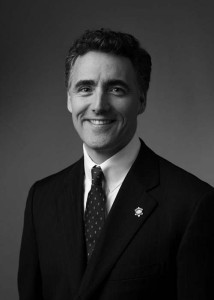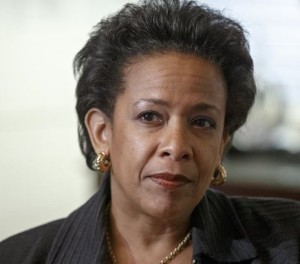This year Shared Hope International is proud to honor the men and women who stand bravely against the commercial sex industry. The 2015 Pathbreaker Award recipients have developed innovative strategies to combat demand, expose trafficking and seek justice. These Pathbreakers join those of prior years who have led the fight against sex trafficking.
John Cotton Richmond
 As a federal prosecutor serving as the Special Litigation Counsel with the Civil Rights Division of the U.S. Department of Justice, Richmond has investigated and prosecuted numerous victim-centered labor and sex trafficking cases throughout the United States. He frequently serves as an expert on human trafficking for the United Nation’s Working Group on Trafficking in Persons and at the European Union’s multilateral meetings on human trafficking. He has trained judges, prosecutors, federal agents, law enforcement officers, non-governmental organizations, and international delegations on human trafficking investigative and prosecutorial strategies. Prior to joining the Department of Justice, John worked on human trafficking crimes as the Director of the International Justice Mission’s slavery work in India.
As a federal prosecutor serving as the Special Litigation Counsel with the Civil Rights Division of the U.S. Department of Justice, Richmond has investigated and prosecuted numerous victim-centered labor and sex trafficking cases throughout the United States. He frequently serves as an expert on human trafficking for the United Nation’s Working Group on Trafficking in Persons and at the European Union’s multilateral meetings on human trafficking. He has trained judges, prosecutors, federal agents, law enforcement officers, non-governmental organizations, and international delegations on human trafficking investigative and prosecutorial strategies. Prior to joining the Department of Justice, John worked on human trafficking crimes as the Director of the International Justice Mission’s slavery work in India.
Alexandra (Sandi) Pierce
 Sandi Pierce, Founder and President of Othayonih Research, is a leader in exposing, addressing, and preventing domestic sex trafficking of American Indian, Alaska Native, and other girls of color. Her report, Shattered Hearts: The commercial sexual exploitation of American Indian women and girls in Minnesota was the first research published in the United States on the impact of this issue on Native communities. As a nationally recognized doctor of applied sociology, she contributes new research on emerging issues including the commercial sexual exploitation of Native women and girls (Shattered Hearts; New Language: Old Problem) and trafficking markets (Mapping the Market). Dr. Pierce draws on her experience as a survivor of sex trafficking to elevate the voice of survivor leaders in the national discussion on sex trafficking. She is of Onondowagah (Seneca) descent.
Sandi Pierce, Founder and President of Othayonih Research, is a leader in exposing, addressing, and preventing domestic sex trafficking of American Indian, Alaska Native, and other girls of color. Her report, Shattered Hearts: The commercial sexual exploitation of American Indian women and girls in Minnesota was the first research published in the United States on the impact of this issue on Native communities. As a nationally recognized doctor of applied sociology, she contributes new research on emerging issues including the commercial sexual exploitation of Native women and girls (Shattered Hearts; New Language: Old Problem) and trafficking markets (Mapping the Market). Dr. Pierce draws on her experience as a survivor of sex trafficking to elevate the voice of survivor leaders in the national discussion on sex trafficking. She is of Onondowagah (Seneca) descent.
Cook County Sheriff Thomas Dart
 Sheriff Tom Dart launched revolutionary efforts to tackle the child sex trafficking industry through a campaign of advocacy and education illustrating the use of the online classified giant, Backpage.com, to promote this industry. In July 2015, Sheriff Dart asked credit card companies, Visa and MasterCard, to join him in his fight against child sex trafficking by removing their cards as payment options on Backpage.com. Within days, both credit cards were no longer available for use on Backpage.com. Though efforts to pressure Backpage.com to shut down the adult entertainment section have continued for years, Sheriff Dart’s fresh approach of educating the credit card companies and their resulting withdrawal impacted the child sex trafficking market and Backpage.com’s bottom line – stirring them to respond.
Sheriff Tom Dart launched revolutionary efforts to tackle the child sex trafficking industry through a campaign of advocacy and education illustrating the use of the online classified giant, Backpage.com, to promote this industry. In July 2015, Sheriff Dart asked credit card companies, Visa and MasterCard, to join him in his fight against child sex trafficking by removing their cards as payment options on Backpage.com. Within days, both credit cards were no longer available for use on Backpage.com. Though efforts to pressure Backpage.com to shut down the adult entertainment section have continued for years, Sheriff Dart’s fresh approach of educating the credit card companies and their resulting withdrawal impacted the child sex trafficking market and Backpage.com’s bottom line – stirring them to respond.
 The National Institute of Justice hosted a conference on justice-involved youth and the new science in brain development led by Attorney General Loretta Lynch and Assistant Attorney General Karol Mason, in addition to a panel of experts. Attorney General Lynch introduced a wide array of restorative programs and ideas to reduce recidivism among late teens and young adults based on new brain developments. Assistant Attorney General Mason moderated the panel. The conference was primarily concerned with youth and young adults ages 18 to 24 who are in the criminal justice system.
The National Institute of Justice hosted a conference on justice-involved youth and the new science in brain development led by Attorney General Loretta Lynch and Assistant Attorney General Karol Mason, in addition to a panel of experts. Attorney General Lynch introduced a wide array of restorative programs and ideas to reduce recidivism among late teens and young adults based on new brain developments. Assistant Attorney General Mason moderated the panel. The conference was primarily concerned with youth and young adults ages 18 to 24 who are in the criminal justice system.






